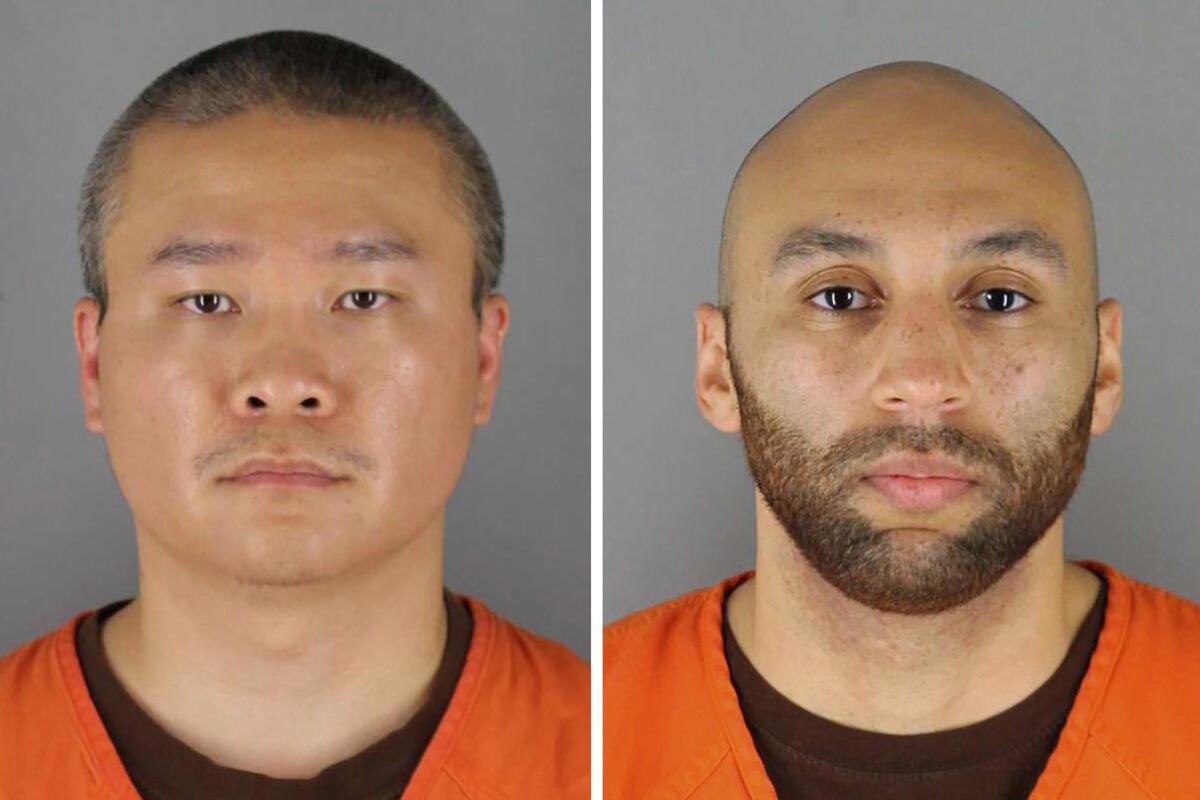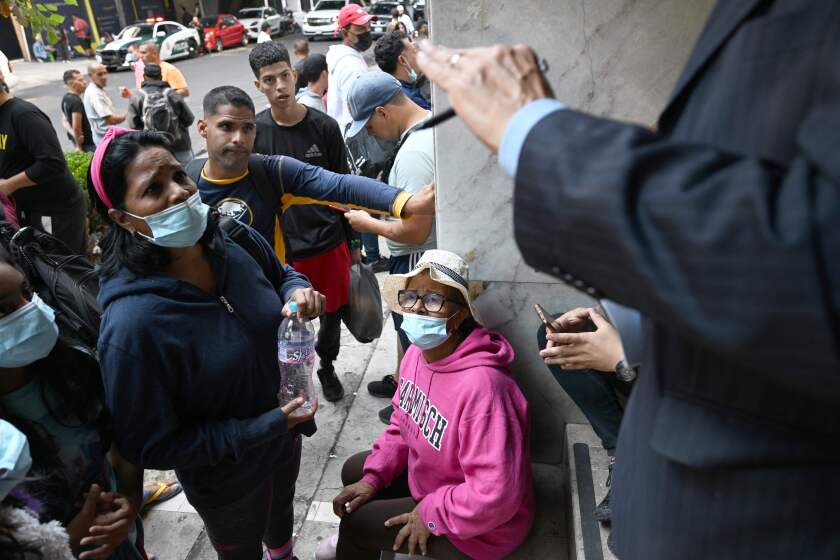Former Minneapolis officer who knelt on George Floyd’s back gets 3½-year term

MINNEAPOLIS — The former Minneapolis police officer who knelt on George Floyd’s back while another officer knelt on the Black man’s neck was sentenced Friday to 3½ years in prison.
J. Alexander Kueng pleaded guilty in October to a state count of aiding and abetting second-degree manslaughter. In exchange, a charge of aiding and abetting murder was dropped. Kueng is already serving a federal sentence for violating Floyd’s civil rights, and the state and federal sentence will be served at the same time.
Kueng appeared at his sentencing hearing via video from a federal prison in Ohio. When given the chance to address the court, he declined.
Floyd’s family members had the right to make victim impact statements, but none did.
Hope is spreading among the tens of thousands of Venezuelans trapped in Mexico that the United States will soon start letting them in again.
Floyd died on May 25, 2020, after former Officer Derek Chauvin knelt on Floyd’s neck for 9½ minutes as Floyd repeatedly said he couldn’t breathe and eventually went limp.
The killing, which was recorded on video by a bystander, sparked worldwide protests as part of a broader reckoning over racial injustice.
Kueng knelt on Floyd’s back during the restraint. Then-Officer Thomas Lane held Floyd’s legs and Tou Thao, also an officer at the time, kept bystanders from intervening. All of the officers were fired and faced state and federal charges.
As part of his plea agreement, Kueng admitted that he held Floyd’s torso, that he knew from his experience and training that restraining a handcuffed person in a prone position created a substantial risk, and that the restraint of Floyd was unreasonable under the circumstances.
Matthew Frank, who led the prosecution for the Minnesota attorney general’s office, said repeatedly during the hearing that Floyd was a crime victim and that the prosecution “focused on the officers” who caused his death.
He added that the case was not meant to be a broader examination of policing, but that he hopes it will reaffirm that police officers cannot treat those “who are in crisis as nonpeople or second-class citizens.”
“Mr. Kueng was not simply a bystander that day. He did less than what some of the bystanders attempted to do in helping Mr. Floyd,” Frank said.
Kueng’s sentencing brings the cases against all of the former officers a step closer to resolution, though the state case against Thao is pending.
Thao previously told Judge Peter Cahill that it “would be lying” to plead guilty. In October, he agreed to what’s called a stipulated evidence trial on the aiding and abetting manslaughter count.
As part of that process, his attorneys and prosecutors are working out agreed-upon evidence in his case and filing written closing arguments. Cahill will then decide whether he is guilty.
If Thao is convicted, the murder count — which carries a presumptive sentence of 12½ years in prison — will be dropped.
Chauvin, who is white, was convicted of state murder and manslaughter charges last year and is serving 22½ years in the state case.
Chauvin also pleaded guilty to a federal charge of violating Floyd’s civil rights and was sentenced to 21 years. He is serving the sentences concurrently at the Federal Correctional Institution in Tucson.
Kueng, Lane and Thao were convicted of federal charges in February: All three were convicted of depriving Floyd of his right to medical care, and Thao and Kueng were also convicted of failing to intervene to stop Chauvin during the killing.
Lane, who is white, is serving his 2½-year federal sentence at a facility in Colorado. He’s serving a three-year state sentence at the same time.
Kueng, who is Black, was sentenced to three years on the federal counts; Thao, who is Hmong American, got a 3½-year federal sentence.
For more AP coverage of the killing of George Floyd: https://apnews.com/hub/death-of-george-floyd
More to Read
Sign up for Essential California
The most important California stories and recommendations in your inbox every morning.
You may occasionally receive promotional content from the Los Angeles Times.










